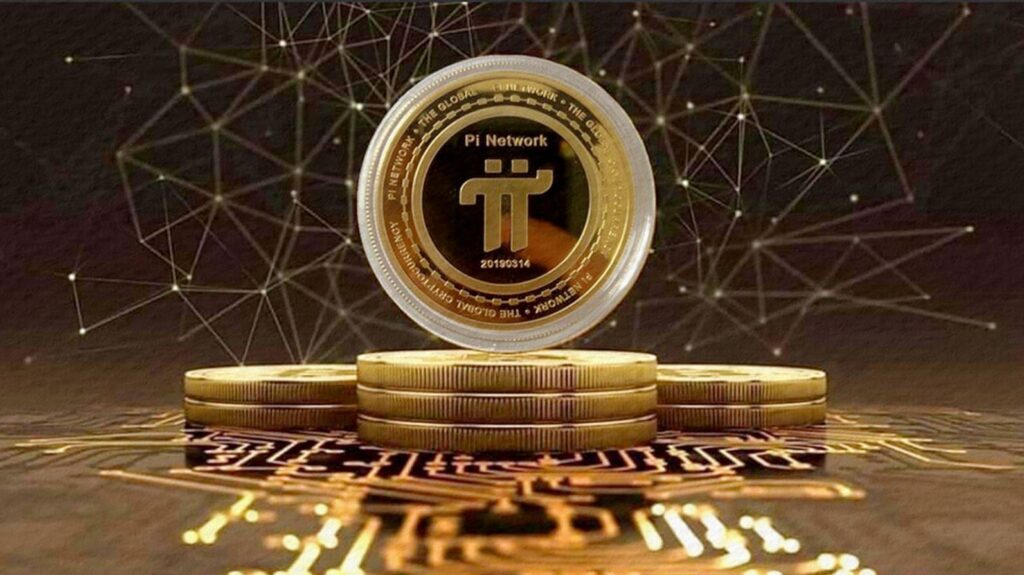As blockchain technology evolves, Pi Network is positioning itself as a significant player in the digital economy. Though still in its limited mainnet phase, the platform is making strides with key partnerships and integrations that could redefine the blockchain landscape. Pi Network has recently announced collaborations with financial institutions, banks, and major businesses, signaling its ambition to bridge traditional finance with decentralized blockchain technology. These developments are just the beginning of Pi Network’s journey toward creating a more integrated and efficient global blockchain ecosystem.
Pi Blockchain: Simplifying Access to Blockchain Technology
Pi Network began with the vision of creating a blockchain that is accessible to everyone, regardless of technical expertise. Unlike traditional mining, which requires expensive hardware and significant investment, Pi allows users to mine and transact using just their smartphones. This simplicity has quickly attracted a large user base, making Pi one of the most talked-about blockchain projects globally.
Despite being in its limited mainnet phase, Pi’s progress has been remarkable. As it continues to expand its partnerships with financial institutions and businesses, the platform is laying the foundation for a future where its blockchain is fully integrated into global financial systems. The increasing number of blockchain applications in traditional finance, such as cross-border payments and decentralized finance (DeFi), showcases the potential of Pi’s technology to drive real-world impact.
Collaborations with Financial Institutions and Major Corporations
Pi Network’s recent partnerships with banks, fintech companies, and large corporations are significant steps toward its goal of mainstream blockchain adoption. By integrating Pi’s blockchain with global payment networks and financial services, the platform aims to tackle inefficiencies in traditional systems, such as high transaction costs and slow processing times.
Blockchain’s decentralization and transparency offer distinct advantages for financial systems, and Pi’s technology is emerging as a potential solution. Pi’s low transaction fees, fast processing speeds, and enhanced security make it an attractive alternative for institutions looking to adopt blockchain technology. These collaborations signal Pi’s growing acceptance in the financial sector, which has historically been cautious about adopting new technologies.
Moreover, major businesses in sectors like e-commerce, logistics, and supply chain management are now exploring how Pi’s blockchain can enhance their operations. From improving transaction security to increasing operational efficiency, Pi’s technology has the potential to transform industries beyond finance, making it an appealing choice for enterprises seeking to streamline their processes and enhance data integrity.
Pi and Stellar Blockchains: Managing Massive Assets
Another exciting development for Pi Network is the use of its blockchain, along with the Stellar blockchain, to manage and transfer significant assets. These include digital currencies and commodities issued by financial institutions, which benefit from blockchain’s transparency, security, and cost-efficiency. The ability to conduct high-volume transactions at a fraction of the cost of networks like Bitcoin and Ethereum is a key advantage of Pi and Stellar’s collaboration.
This integration of large-scale assets into the Pi and Stellar ecosystems demonstrates how blockchain can revolutionize the way financial transactions and data management are conducted. By leveraging both blockchains for secure and efficient asset transfers, Pi is positioning itself as a serious contender in the global financial landscape. Although still in its early stages, the use of Pi’s blockchain for major assets could pave the way for even greater adoption in the future.
Overcoming Challenges: Scaling and Building Trust
Despite the impressive progress, Pi Network still faces several challenges. One of the main hurdles is scaling the platform to accommodate a broader range of users and sectors. This includes addressing technical limitations, ensuring the blockchain’s scalability, and building trust within the wider financial ecosystem.
Additionally, Pi must continue to expand its network of partners, including developers and businesses, to ensure that the blockchain is used across a variety of applications. As the platform grows, the network will need to prove its ability to handle higher transaction volumes while maintaining security and efficiency. This will be critical in determining Pi Network’s long-term success.
The Future of Pi Network: A Path to Mass Adoption
The road ahead for Pi Network is filled with potential. As the platform evolves, its ability to offer a decentralized, secure, and efficient financial system could reshape the digital economy. Pi’s open and accessible model makes it a strong candidate for inclusion in the DeFi space, especially if it continues to form new partnerships with businesses, financial institutions, and developers.
Looking ahead, Pi Network will need to scale its ecosystem, encourage more developers to build on its platform, and create new opportunities for users to engage with the network. However, with ongoing innovation and a growing list of strategic partnerships, Pi Network is poised to become a major player in the blockchain space.
Pi Network’s Growing Ecosystem
While Pi Network is still in the early stages of its mainnet launch, the project is already making a significant impact. With its increasing partnerships with financial institutions, businesses, and the use of blockchain technology to manage large-scale assets, Pi’s future looks promising. As the platform matures, Pi Network could potentially become a leading force in the financial industry, reshaping how transactions are conducted and setting the stage for more inclusive and efficient financial systems.
With a growing ecosystem and a clear vision for the future, Pi Network is undoubtedly a project to watch as it continues to evolve. The next few years will be crucial in determining whether Pi can fulfill its ambitious goal of creating a decentralized, inclusive, and efficient financial system. But with its early successes and the increasing interest from key players in the blockchain and financial sectors, Pi Network is certainly on track to become a major player in the blockchain world.



Pi coin
Proud of having mined Pi